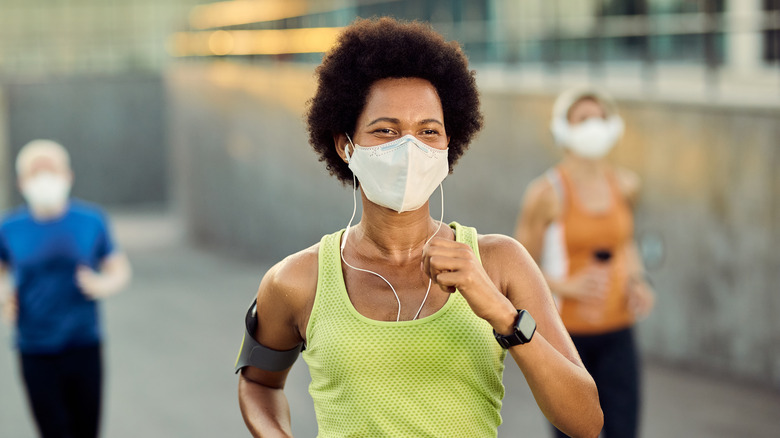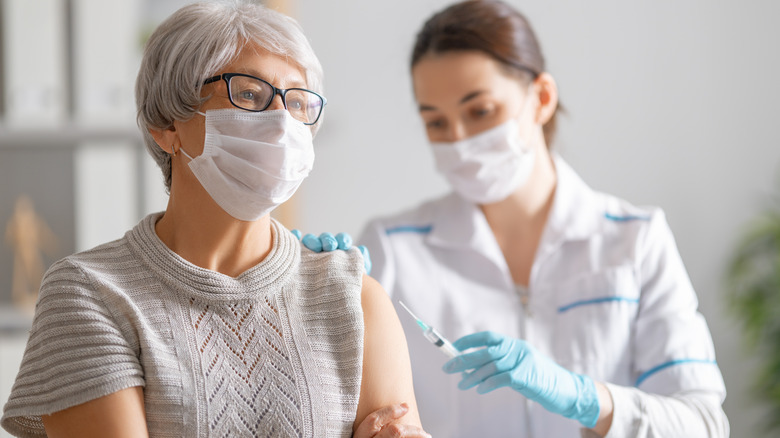The Surprising Way Exercise Might Help If You Have COVID-19
Even as vaccination efforts continue, you may still end up contracting COVID-19 before you get your vaccine. But if you're a regular exerciser, you may have a better chance of experiencing less severe symptoms. New research has shown that COVID-19 patients who reported being inactive had a higher risk of being hospitalized and put in intensive care, and a higher risk of death (via the British Journal of Sports Medicine).
In fact, the data collected from over 48,000 COVID-19 patients in this study in the last year—before the vaccine was available—was so compelling that the study authors concluded that promoting physical activity should be "prioritized by public health agencies and incorporated into routine medical care," meaning your family doctor and the government should be recommending moving more to stay healthy during this time. Even in countries with strict lockdowns, most allowed for some form of outdoor exercise and only closed down exercise facilities where social distancing wasn't possible, and clearly, that was a good idea (via The Telegraph).
What does the study mean for someone who hasn't had COVID yet?
Obviously, this study doesn't suggest that exercise can protect you entirely from COVID-19. Instead, consider exercise to be a preventative measure just like hand-washing. According to the New York Times, family and sports medicine doctor Robert Sallis noted that only advanced age and organ transplants were more likely to increase the severity of COVID-19 symptoms compared to inactivity. And, as he also noted, while you can't change your age or your organ transplant history, you can change your physical activity habits.
Should you still plan to get vaccinated if you're active? Definitely, Sallis told the New York Times. As the lead author on this recent study, he's excited about the idea that exercise may lower the severity of symptoms, but says that it's not a substitute for getting a vaccine. "I would never suggest that someone who does regular exercise should consider not getting the vaccine. But until they can get it, I think regular exercise is the most important thing they can do to lessen their risk," he told the New York Times. "And doing regular exercise will likely be protective against any new variants, or the next new virus out there." His suggestion? A brisk 30-minute walk five times a week to get started.


